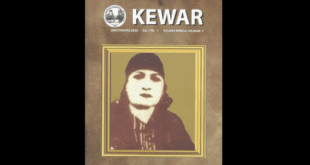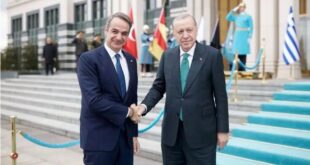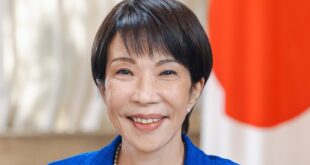On the morning of May 23, Dutch police arrested Kurdish journalist Serdar Karakoç in Amsterdam at the request of Germany.
On the morning of May 23, Dutch police arrested Kurdish journalist Serdar Karakoç in Amsterdam at the request of Germany.
Karakoç who was apparently arrested upon Germany’s extradition request, was brought to court on 28 May and it was decided to continue his detention and to bring him to court again after 20 days.
Germany’s extradition requests for Kurdish activists from European countries have increased in recent years. Lawyers defending Kurdish activists in Germany point out that the German government has given in to Turkey’s illegal extradition requests and that the imprisoned Kurdish activists are at risk of being extradited to Turkey. It is stated that if journalist Karakoç is extradited to Germany, he may face a similar risk of extradition to Turkey.
Who is Serdar Karakoç?
Born in 1960 in Dêrsim province of Northern Kurdistan, Karakoç began working as a journalist in the 1980s. Karakoç, who has worked in the Kurdish press for more than 35 years, is one of the dozens of Kurdish press workers who were subjected to state violence and risked death and arrest while trying to make the voice of the Kurdish people heard in the 1980s and 1990s, when extrajudicial killings were committed. Karakoç, who has worked for many Kurdish newspapers and magazines, is one of the employees of the Özgür Ülke newspaper whose three offices, two in Istanbul and one in Ankara, were bombed simultaneously on 3 December 1994. Karakoç was working in the Istanbul office of the newspaper when the bombings took place, killing one person and injuring 23 others. Without even opening an investigation into the attacks, the injured journalists, including Karakoç, were arrested and sent to prison as soon as they were discharged from hospital.

About two weeks later, the Özgür Ülke newspaper was again targeted with a document signed by the then Prime Minister Tansu Çiller. The document stated that measures would be taken against the media, which was seen as a threat to the integrity of the state, and that Özgür Ülke Newspaper would be targeted in particular. As a result of this official document, Özgür Ülke was closed down.
Karakoç, who was released from prison after a long imprisonment in Turkey, fled to Europe in 2001. He lives in the Netherlands as a recognised political refugee.
——————————-
Photo: Serdar Karakoç/Stêrk TV
 Infowelat Enformasyon Ji Bo Welat
Infowelat Enformasyon Ji Bo Welat




